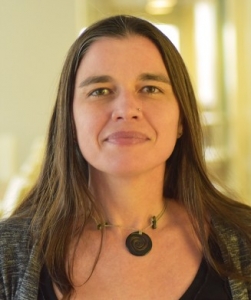Sarah Baird
Sarah Baird is an Associate Professor of Global Health and Economics in the Department of Global Health. She is also the Vice Chair of the Department of Global Health. She serves as the Program Director for the Global Health Program Design, Monitoring, and Evaluation MPH Program within the department. Dr. Baird is also a Non-Resident Fellow at the Center for Global Development and an Affiliated Faculty at The Institute for International Economic Policy (IIEP) at the Elliot School of International Affairs.
Dr. Baird is a development economist whose research focuses on the microeconomics of health and education in low- and middle-income countries with an emphasis on gender and youth. Her work has been published in leading academic journals including the Quarterly Journal of Economics and The Lancet, and has been featured in media outlets such as
The New York Times and The Economist. Baird’s current work investigates different policy approaches to improve outcomes for adolescents ranging from cash transfers, to Group Interpersonal Psychotherapy, to social norms change. She received her PhD from the Department of Agricultural and Resource Economics at UC Berkeley in 2007.
Dr. Baird’s research interests are largely contained within the intersection of health, poverty, and education at a micro-level. She utilizes quantitative research methods to investigate the causal effects of programs and policies on health and education outcomes, with a particular focus on gender and youth.
She is currently the quantitative lead for the Gender and Adolescence: Global Evidence (GAGE) program (https://www.gage.odi.org/), a study that is longitudinally following girls and boys in Bangladesh, Ethiopia, Jordan, and Rwanda to understand what works to improve the lives of adolescents.
She is also the PI on the Connect project (https://resourcecentre.savethechildren.net/library/connect-increasing-use-pospartum-family-planning-first-time-parents), which aims to increase postpartum family Planning by first-time parents in Bangladesh and Tanzania.
She also has ongoing randomized impact evaluations in Malawi (cash transfers), Kenya (school-based deworming), and Uganda (Group Interpersonal Psychotherapy + cash transfers).




